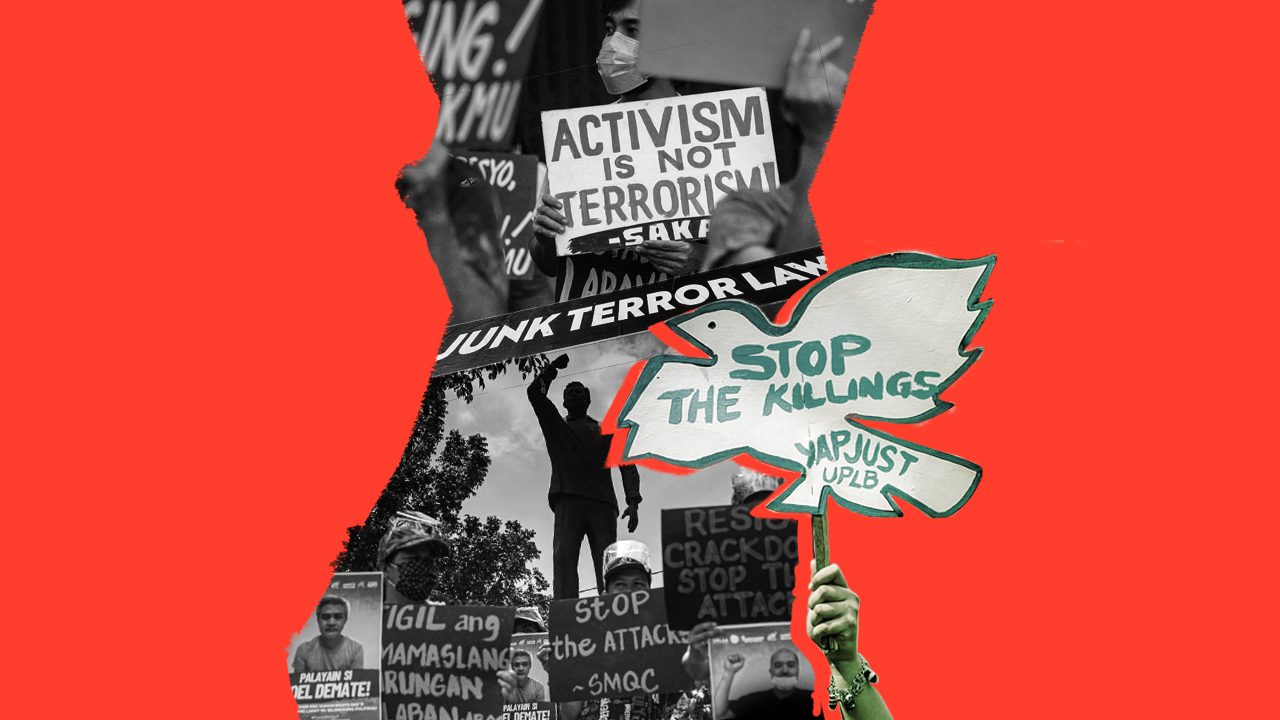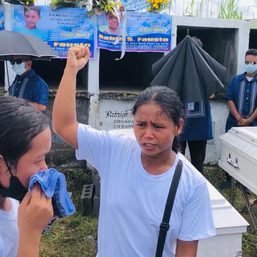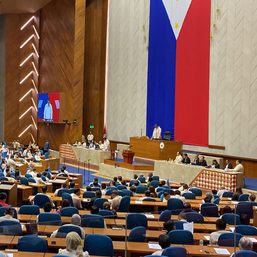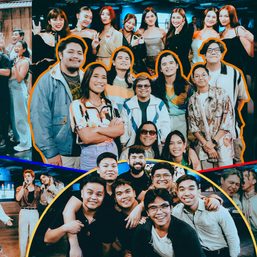SUMMARY
This is AI generated summarization, which may have errors. For context, always refer to the full article.

MANILA, Philippines – Human rights defenders and activists continued to fight to survive under President Rodrigo Duterte in 2021.
As they ramped up criticism of the government’s problematic policies, including the violent war on drugs, they had been on the receiving end of threats and harassment from Duterte and his supporters and allies.
Deadly rhetoric from the presidential pulpit translated into violence against people on the ground. Many were killed and arrested all over the Philippines. In one day alone on March 7, tagged as “Bloody Sunday,” at least nine activists were killed by the police and military.
As of August 2021, rights group Karapatan had documented 421 incidents of killings since July 2016. There were also least 504 recorded cases of frustrated killings, while 1,138 activists had been arrested and detained over the past five years.
All of these happened while the state used its resources to mount massive efforts to tag activists as communist rebels. Even community pantries, an effort lauded for having filled in the service gaps left by the government during the pandemic, were accused of being vehicles for communist propaganda.
In between the attacks were important wins. At least 24 activists were cleared and freed in 2021 for charges related to searches and search warrants. The latest were three peasant leaders ordered released after spending 10 years in jail.
But looming over the heads of not just activists but Filipinos is the threat of the anti-terror law. The Supreme Court recently upheld most of its provisions, except a phrase under Section 4 that would’ve made dissent or protest a crime if it had an intent to cause harm, and the anti-terror council’s power to designate a person or a group as terrorists based on another country’s request.
Groups fear the deadly consequences of the SC’s decision not to junk the entirety of the contested law, with Karapatan saying that this will “only set to worsen the already dismal human rights situation in the country.”
What will 2022 bring? Read Rappler’s coverage of attacks against activists, rights defenders, and community organizers to get a sense of what they are bracing for:
- New war: How the propaganda network shifted from targeting ‘addicts’ to activists
- Leaders lost: The 9 activists killed by Duterte gov’t on ‘Bloody Sunday’
- Under Duterte, Calabarzon activists fight to stay alive
- From UN reports to Congress: The many times ‘red-tagging’ was used
- Raising a baby in jail, activist Amanda Echanis chooses hope
- Quiboloy’s news group repeatedly red-baits Makabayan bloc during COC filing
- Principles and compromises: How Makabayan survived under Duterte
- Until the end, union leader Dandy Miguel fought for workers’ rights
- Bloody Sunday ‘chase’? Cops search home, kill activist in another town
- Duterte government moves to get activists out of party list
- Labor activists after leaders’ killing: Hope is what’s left for us
- Prelude to 2022? Thousands of grassroots organizers arrested, hundreds killed
- Calls grow louder for SC to step in amid killings. Will justices listen?
- Big win for activists: Manila court frees 3 peasant leaders in mass graves case
- Judge says warrants ‘susceptible to abuse,’ frees 2 activists
- Supreme Court upholds most of anti-terror law, including 24-day detention
- Groups fear ‘deadly consequences’ as SC upholds most of anti-terror law
- ‘We don’t deserve mere consolation from Supreme Court’ – lawyers vs anti-terror law
- FAST FACTS: Who is Renalyn Tejero, the Lumad activist arrested in Cagayan de Oro?
- EXPLAINER: How to address problem of search warrants vs activists
- EXPLAINER: DOJ’s AO 35 panel probing Calabarzon killings and mistrust
- PODCAST] KRIMINAL: Living with a red tag in the Philippines
- [PODCAST] Law of Duterte Land: The law of NTF-ELCAC
- [PODCAST] Is Duterte responsible for ‘Bloody Sunday’?
- [PODCAST] Lahat na lang ay sinasabing komunista sa ilalim ni Duterte
- Rappler Talk: Duterte’s crackdown on activists
– with reports from Lian Buan/Rappler.com
Add a comment
How does this make you feel?
























There are no comments yet. Add your comment to start the conversation.